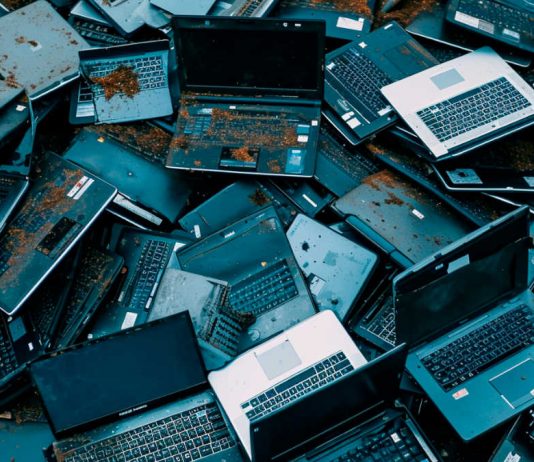Microsoft has announced plans to end support for the Windows 10 operating system by October 2025. This move is expected to result in the disposal of approximately 240 million PCs, potentially leading to a considerable increase in electronic waste. The anticipated e-waste from these devices could weigh around 480 million kilograms, equating to the heft of 320,000 cars, as per Canalys Research‘s estimates.
The cessation of Windows 10 support is poised to create a mountain of electronic waste, posing a significant challenge to global waste management and recycling efforts. If these computers were laptops folded and stacked, they would form a towering pile over 4,000 kilometers high, surpassing the moon by 600 kilometers. This vivid illustration highlights the scale of the potential e-waste problem that could emerge in the wake of this technological transition.
From an economic perspective, the end of Windows 10 support presents a dilemma for both individual users and businesses. Microsoft’s plan to offer security updates until October 2028, albeit at an undisclosed annual cost, raises questions about the cost-effectiveness of maintaining older PCs versus investing in new ones. This decision could significantly influence market dynamics, potentially leading to a surge in PC replacements.
Transitioning from Windows 10 to Windows 11 is not a straightforward process. PCs must meet specific hardware requirements, including a compatible 64-bit processor, a minimum of 4 GB of RAM, 64 GB of storage, and the crucial TPM 2.0 for enhanced security. This technological barrier means that a substantial number of PCs, currently running Windows 10, may not be eligible for the upgrade, rendering them obsolete.
The impending end of Windows 10 support has sparked concern among environmental groups and public interest research groups (PIRG). They warn that this move could lead to the obsolescence of more computers than any other action in history. In response, there have been calls for Microsoft to extend the support timeline, highlighting the potential conflict between the company’s environmental goals and the consequences of this decision.
As the 2025 deadline approaches, the tech industry and consumers are faced with a critical challenge. Balancing technological advancement with environmental responsibility has never been more crucial. This situation presents an opportunity for innovation in recycling and refurbishing technology, as well as in developing more sustainable computing solutions.


